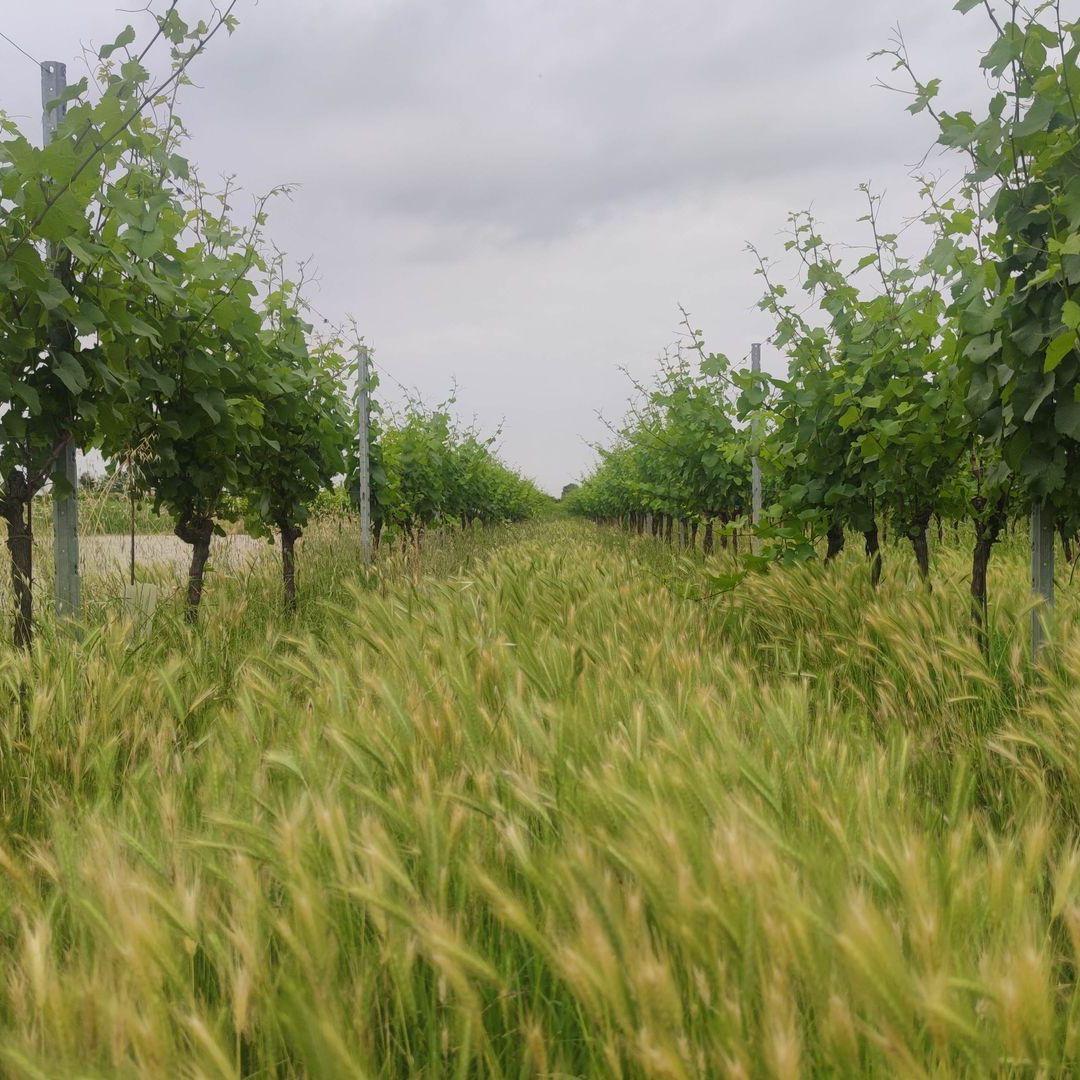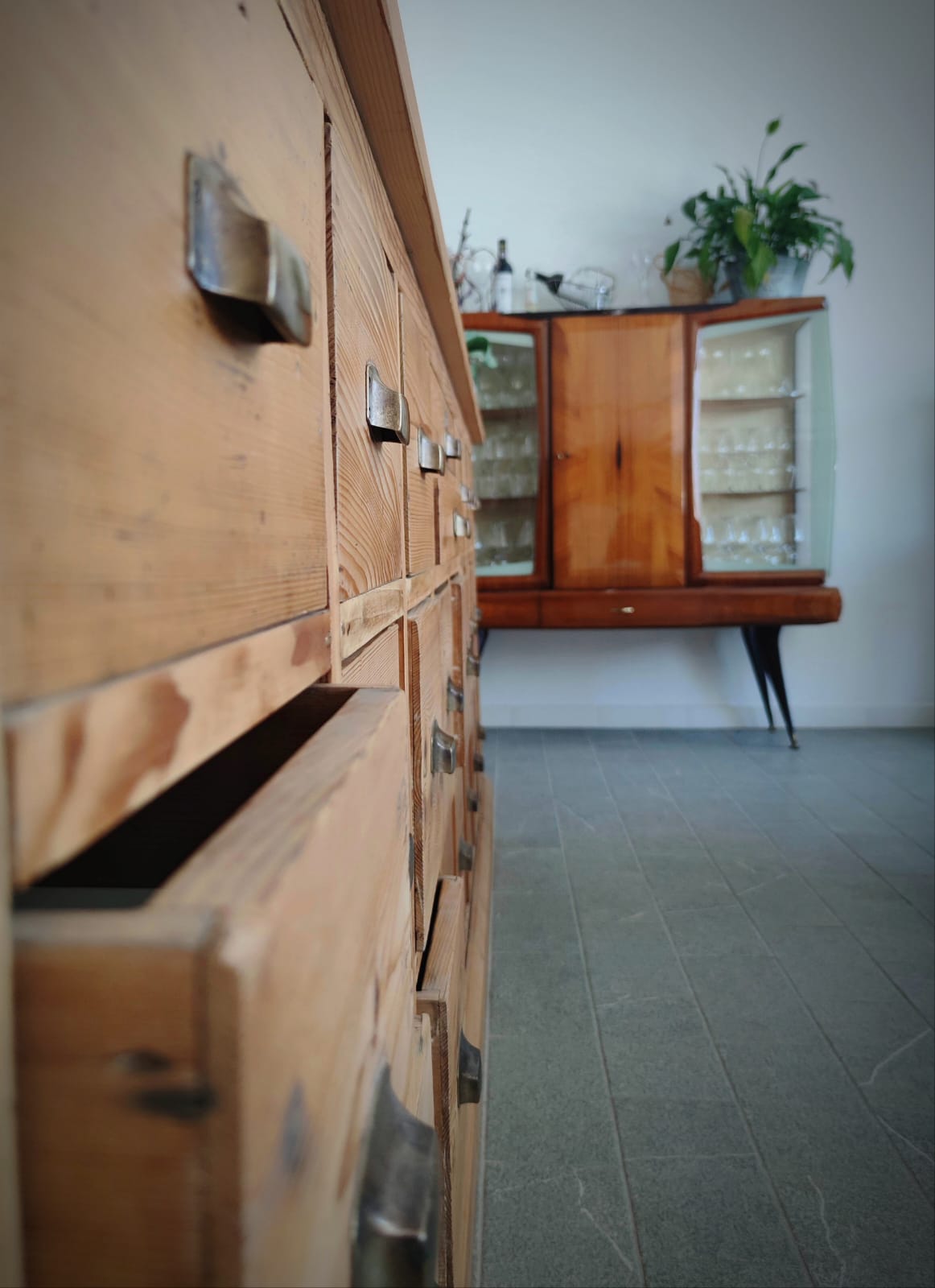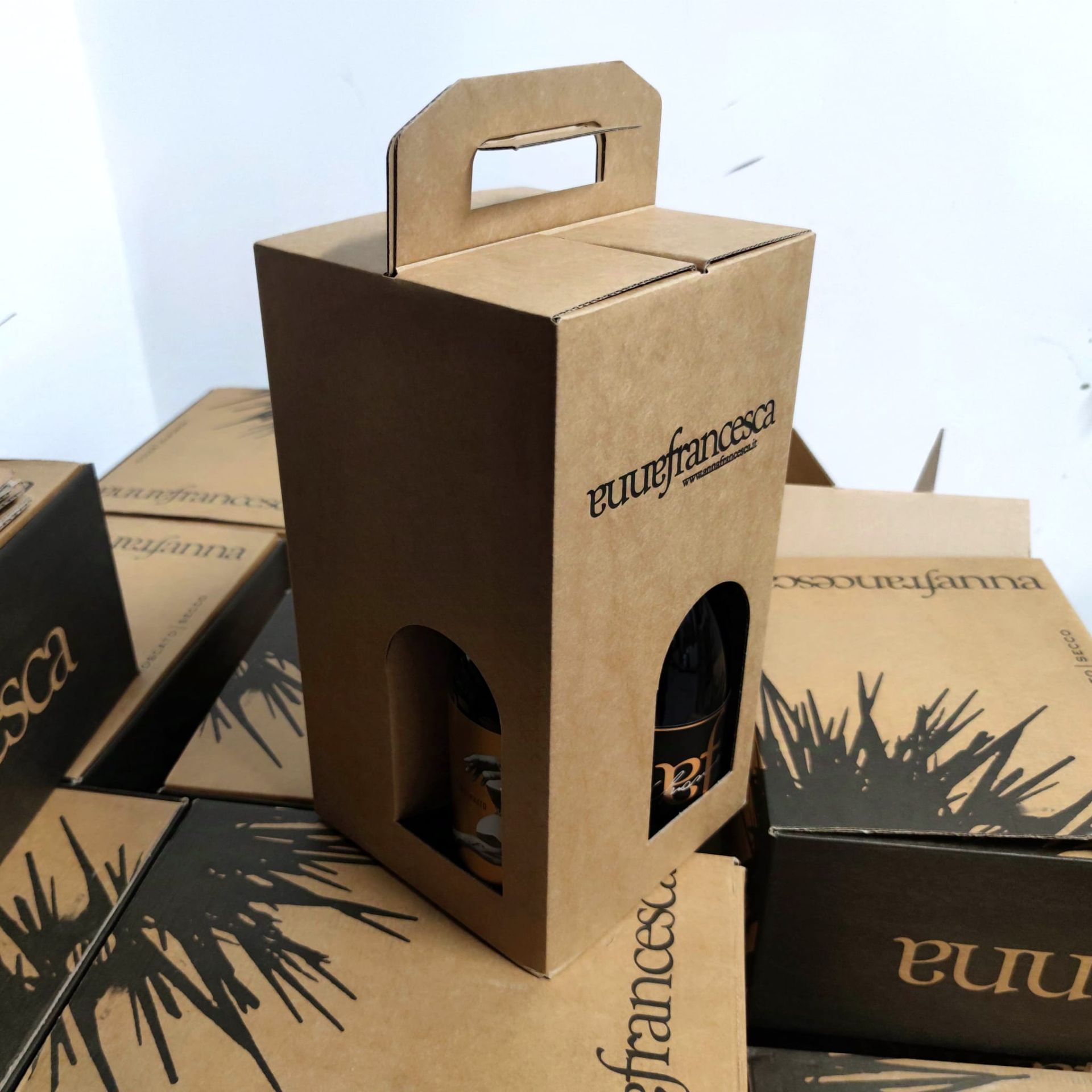Our sustainability project:
from the vineyard to the cellar
There is a simple way to describe how we view our sustainability project: spontaneous, necessary, constantly evolving. And finally, evident..
In the vineyard
Spontaneous: we switched to organic farming after experiencing conventional chemical treatments firsthand and on our own skin while working in the vineyard. Although we didn't intend to achieve organic certification, it was a necessary choice, both for personal ethics and health reasons, to seek alternative, organic treatments that were less harmful to the environment, insects, and ourselves. In 2020, we decided to officially certify our transition to organic farming, thus opening up sales opportunities to even the most demanding Northern European markets.
Evolving: alongside the classic grape varieties (Merlot, Pinot Grigio, and Moscato Giallo), we've added some Piwi red and white varieties, which are resistant to vine diseases and require fewer treatments throughout the year. This evolution means fewer organic treatments, less tractor use, and less water use.
In the cellar
Consistent: To accommodate tours and tastings year-round, we renovated an old building not far from the vineyard and created the Wine Loft, a modern industrial-style tasting room completely furnished with vintage pieces sourced from attics and flea markets. This way, we've given a second life to furnishings that are still incredible and functional. Furthermore, the wine storage room has been insulated to maintain the ideal temperature inside with minimal use of air conditioning. Sustainable, not only in the vineyard, but also in the cellar.
"Why not build the winery directly in the vineyard?" we're often asked; to protect our beautiful organic oasis, that's the answer. In fact, the water channel that surrounds our land is protected by environmental protection laws, so we would have had to build more than 150 meters away, in the heart of the vineyard, with extremely invasive work on the land.
The tastings
For tastings and events, we avoid disposable plates and dishes and serve wine and water in glasses and stemware; water is exclusively bottled in glass, minimizing plastic use. The cured meats and cheeses we use to pair with wines come from small local producers with whom we collaborate to promote the Veronese Plain.
Reduce, Reuse, Recycle? No...transform!
The cartons containing our wine bottles are extremely durable for a specific reason: they can be reused multiple times. Typically, the average lifespan of a wine carton is very short: once emptied of bottles, it is discarded still in perfect condition, generating large amounts of waste to dispose of as well as wasting resources. We, however, ask our private customers and restaurants to return empty cartons to us whenever possible so we can reuse them, on average, 2-3 more times.
When they're too damaged, however, their life isn't over: they're ground and transformed into natural paper, without the use of chemical glues, by local artisan Margot F.ab (SITO), and turned into tasting placemats and other paper objects. This is thanks to the fact that our cartons are not laminated, but printed on raw cardboard.
Obvious Sustainability
The word sustainability is used so often that it risks losing its meaning; our sustainability project, however, is concrete in every place and at every stage, is constantly evolving, and above all, is evident: just a stroll through our organic vineyard oasis and our Wine Loft is enough to be completely surrounded by it.

Organic Vineyard
Biodiversity and lush nature, birds and fish in waters found only in healthy places: let them tell our sustainability story

Second-hand furniture
Furniture that comes from our attics or from second-hand markets and thrift stores, to be sustainable even in the wineshop

Infinite life for our cardboard
Durable packaging to be used multiple times and when it is no longer possible, it transforms into natural paper: we do not know disposable.!